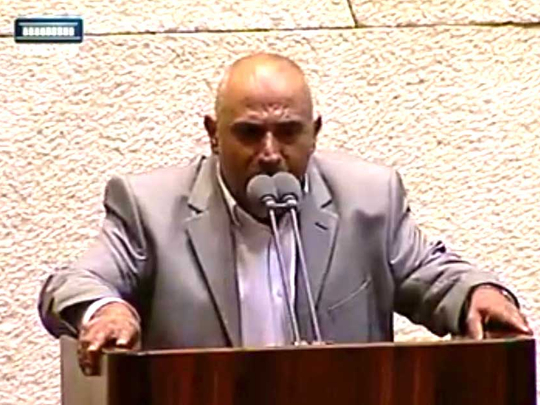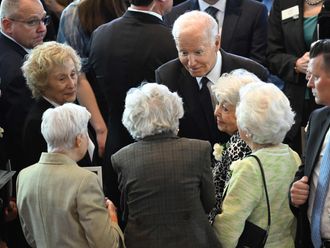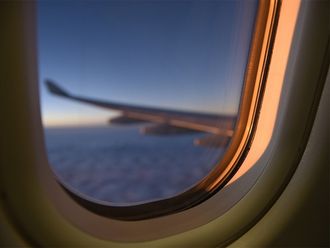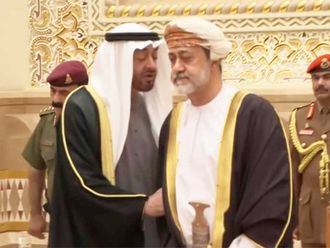
Ramallah: A controversial Israeli bill to ban the use of loudspeakers for the Islamic call to prayer has been blocked by an Orthodox Jewish party amid fears that the ban could also extend to similar Jewish practices.
The regime’s parliament was set to vote on the bill on Wednesday, and the surprise opposition came from several ultraorthodox parties, including the United Torah Judaism party and the right-wing Shas who feared that the announcement of the Jewish Sabbath would also be affected.
The Israeli Minister of Health, Yaakov Litzman, of the United Torah Judaism party, filed an appeal against the bill, after meeting with the Palestinian members of the Knesset from the Joint Arab List, who have opposed the bill.
Israeli parliament debate
According to the Israeli media, Litzman’s appeal clearly stated that the proposed bill had serious implications for the Sabbath siren, and could potentially put the kibosh on religious Jewish communities using loudspeakers to announce the commencement of the Sabbath on Friday evenings.
Litzman mentioned similarities between the Muslim call to prayers and the call announcing the beginning of Sabbath. “For thousands of years, different instruments have been used for this purpose, including the shofar and the trumpet. With the advancement of technology, loudspeakers are now used to announce the beginning of Sabbath,” he said. “The bill as it currently stands could potentially harm the status quo, and so, in accordance with governmental protocol, this appeal is hereby submitted for further review.”
The direct opposition to the bill by the ultraorthodox Jewish community, which is a main component of the Israeli ruling coalition, denies it the needed majority in the Knesset to pass the preliminary vote, and means it will now be subjected to further governmental review.
The bill was penned and proposed by Moti Yogev of the radical Jewish Home party, and was approved by the Knesset’s Ministerial Committee for Legislation. It had the full backing and support of Prime Minister Benjamin Netanyahu.
Palestinians from occupied East Jerusalem, the Palestinian National Authority (PNA) and Jordan, all slammed the bill as a serious attack on freedom of religion, and vowed to oppose it.
Expressing their intense anger during a parliamentary discussion, Palestinian members of the Knesset, including Ahmad Al Tibi and Taleb Abu Arar, recited the Muslim call to prayer several times at the podium to show the uncompromising Muslim commitment to the call in Islam’s third holiest city, enraging some Jewish members of the parliament. Joint Arab List members proposed the establishment of a special committee to be presided over by the head of the Sharia Appeal Court, Judge Abdul Hakim Samara, and to include representatives of all society sectors to organise the Muslim call to prayer.
“There are noise laws and regulations that already apply to mosques, so it’s clear that the sole purpose of the bill is to mark the mosques as a problem source. It is a clear attack on Muslim freedom of religion, and the continuation of a wave of persecution led by the prime minister,” said Ayman Odeh, who heads the Joint Arab List.
Haneen Al Zoabi, another member of the Knesset, said that the Israeli bill is aimed at changing the area’s core nature and identity. “The call to prayer is a central component of our home and its culture, and those who seek to silence it actually want to uproot a main part of the mentality, character and soul of the indigenous people,” said Zoabi on her Facebook page. “Those who are disturbed by the call to prayer should leave. This is the unchanging Orient with its culture and nature.”
Palestinian citizens of Israel held a protest against the bill at the city of Sakhnin on Tuesday.












